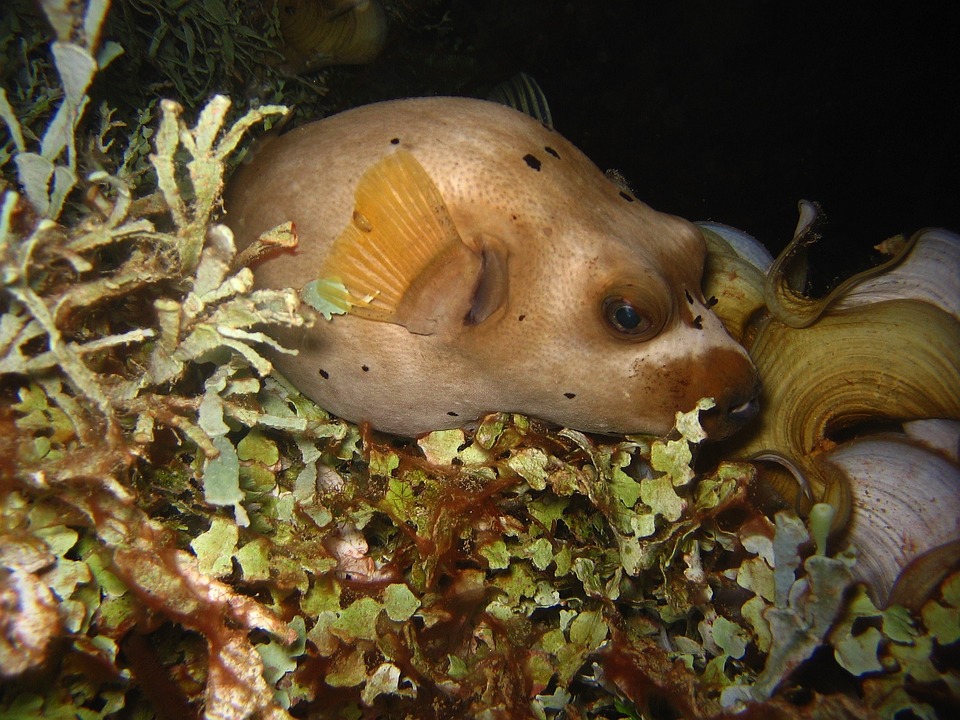Assessing the Appetite of Disease-Resistant Fish in Fish Tanks: A Comprehensive Guide
Introduction:
Maintaining the health of fish in aquariums is of utmost importance for any fish owner. One crucial aspect of fish health is their appetite, as it serves as an indicator of their overall well-being. In this comprehensive guide, we will explore the significance of appetite in assessing the health of disease-resistant fish and how it contributes to a healthy tank environment.
Section 1: Understanding the Appetite of Disease-Resistant Fish
1.1 What is appetite and why is it important?
Appetite in fish refers to their desire and willingness to consume food. It plays a crucial role in reflecting their overall health and well-being. A healthy appetite is particularly essential in disease-resistant fish as it indicates their ability to withstand potential diseases and maintain a strong immune system.
1.2 Factors affecting the appetite of fish
Several factors can influence the appetite of fish. Water quality is a significant determinant, as poor water conditions can lead to stress and reduced appetite. Temperature also plays a role in appetite regulation, with extreme temperatures affecting fish metabolism and feeding behavior. Other stress-related factors, such as overcrowding or aggressive tank mates, can also impact appetite. Understanding the nutritional requirements and feeding habits of disease-resistant fish is crucial in ensuring their optimal appetite.
Section 2: Assessing the Appetite of Disease-Resistant Fish
2.1 Observing feeding behavior
Observing the normal feeding behavior of disease-resistant fish is essential in assessing their appetite. A healthy fish will actively search for food, exhibit excitement during feeding time, and consume an appropriate amount. Signs of reduced appetite or abnormal feeding patterns, such as lethargy or uneaten food, can indicate appetite issues. Monitoring changes in feeding habits over time can help identify potential health concerns.
2.2 Monitoring weight and body condition
Establishing a baseline weight for comparison is vital in monitoring the appetite of disease-resistant fish. Regular weighing and assessing the body condition score can help determine if a fish is losing or gaining weight. Signs of weight loss or gain can be indicative of appetite issues or underlying health problems.
2.3 Evaluating waste production
Normal waste production is a sign of a healthy fish with a good appetite. Monitoring waste patterns is crucial in assessing appetite issues. Abnormal waste patterns, such as reduced or excessive waste, can indicate appetite problems. Maintaining proper water quality through effective waste management is crucial for supporting fish appetite.
Section 3: Promoting and Restoring Appetite in Fish
3.1 Ensuring optimal tank conditions
Maintaining appropriate water parameters, such as pH, ammonia, and nitrate levels, is essential for promoting fish appetite. Providing a suitable tank setup and environment, including adequate hiding places and suitable tank mates, can minimize stress factors that may impact appetite.
3.2 Offering a balanced and varied diet
Understanding the nutritional needs of disease-resistant fish is crucial in promoting a healthy appetite. Providing a diverse diet that meets their specific requirements is essential. Feeding frequency and portion control should also be considered to avoid overfeeding or underfeeding.
3.3 Addressing appetite issues
Identifying potential health concerns or diseases that may affect appetite is crucial. Consulting with a veterinarian or fish health specialist can help diagnose and treat such issues. Implementing appropriate treatments or adjustments, such as medication or dietary changes, can help restore appetite and ensure the overall well-being of disease-resistant fish.
FAQs (Frequently Asked Questions):
Q1: How often should I feed disease-resistant fish in my tank?
A1: The feeding frequency varies depending on the species and their nutritional requirements. It is generally recommended to feed fish small portions multiple times a day, ensuring they consume all the food within a few minutes.
Q2: Can stress affect the appetite of fish?
A2: Yes, stress can significantly impact the appetite of fish. Stressful conditions, such as overcrowding or aggressive tank mates, can lead to reduced appetite or even appetite loss.
Q3: What are some common signs of reduced appetite in fish?
A3: Signs of reduced appetite in fish include lethargy, loss of interest in food, and uneaten or partially eaten food in the tank.
Q4: Are there any specific dietary requirements for disease-resistant fish?
A4: Disease-resistant fish may have specific dietary requirements. Researching the nutritional needs of the specific species and providing a balanced diet that includes proteins, vitamins, and minerals is crucial.
Q5: How can I determine if my fish is losing weight?
A5: Regularly monitoring the weight of fish can help determine if they are losing weight. Comparing the current weight to a baseline weight can indicate any significant changes.
Q6: What are some common diseases or health issues that can cause appetite loss in fish?
A6: Various health issues, such as bacterial or fungal infections, parasites, and organ problems, can cause appetite loss in fish.
Q7: Is it normal for fish to have fluctuations in appetite?
A7: Some fluctuations in appetite can be normal, mainly due to factors like temperature changes or breeding cycles. However, significant and prolonged fluctuations may indicate underlying health concerns.
Q8: How can I maintain proper water quality to support fish appetite?
A8: Regularly testing and maintaining appropriate water parameters, such as temperature, pH, and ammonia levels, is crucial for supporting fish appetite. Proper filtration and regular water changes are also essential for maintaining good water quality.
Conclusion:
Regularly assessing the appetite of disease-resistant fish is crucial for maintaining a healthy tank environment. By observing feeding behavior, monitoring weight and body condition, and evaluating waste production, fish owners can identify and address appetite issues promptly. Providing optimal tank conditions, a balanced diet, and timely intervention can help promote and restore appetite in disease-resistant fish, ensuring their overall well-being and disease resistance.









